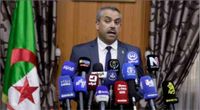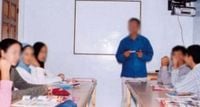On May 8, 2025, Mohamed Saghir Sadaoui, the Minister of National Education, addressed concerns regarding the rising trend of private tutoring in Algeria. Speaking in Algiers, he emphasized that while the demand for supplementary lessons outside traditional educational settings is growing, it should not conflict with the established educational programs. This statement came during a session with members of the National People's Assembly, reflecting the government's ongoing efforts to ensure quality education for all students.
Sadaoui clarified that the Ministry is committed to providing quality education within national educational institutions. He stated, "The Ministry of National Education is committed to providing quality education at the level of national educational institutions, in a way that guarantees equal opportunities, without prejudice to it in any way." This commitment aims to equip students with the confidence necessary to successfully navigate their examinations, particularly the final ones.
In an effort to monitor and enhance educational access, Sadaoui noted that educational institutions have opened their doors for enrollment during the holidays. Additionally, the National Education Authority has organized courses via special platforms and has also collaborated with various educational channels, including the well-known knowledge channel, to provide further learning opportunities.
However, the issue of overcrowded classrooms remains a significant challenge. Sadaoui acknowledged the pressing need for measures to alleviate this issue, emphasizing that the sector accommodates approximately 12 million students across 30,000 institutions, with over one million employees. He pointed out that the ministry has implemented strategies such as expanding classroom sizes to ease the burden on overcrowded schools.
Furthermore, Sadaoui highlighted the recent basic laws governing the education sector, which he believes will lead to substantial improvements in the classification of educational institutions. He remarked, "The quality of education depends on a set of factors, the first of which is improving the professional and social conditions for employees and improving educational structures and providing them with the necessary equipment," adding that enhancing training and refining curricula are also crucial.
In a related discussion, Jouda Dahman, a representative from the Secondary Education Teachers' Union, participated in the "Tunisian Street" program, where she called for comprehensive educational reforms. She argued that the proliferation of private lessons has become a necessity rather than a luxury, stating, "Private lessons have become a necessity, not a bad thing for teachers or the guardian." Dahman expressed concern that these lessons often replace formal classroom education, which can undermine the educational objectives.
Dahman also pointed out that the pressures faced by students and their families to achieve high scores are immense, contributing to a stressful educational environment. She urged the Ministry of Education to take responsibility and engage all stakeholders in addressing these challenges, insisting on the need for a collaborative approach to reform the educational system.
Moreover, Dahman noted that teachers are increasingly turning to private tutoring as a result of inadequate salaries, which she believes is a significant factor pushing them toward this alternative income source. She stressed that the Ministry must acknowledge these pressures and work towards a more equitable educational framework.
While the Minister Sadaoui stated that the educational sector does not encompass language schools, he reiterated that his focus remains on public and private national institutions. He maintained that the Ministry's efforts are geared towards ensuring that students receive the necessary support to excel academically.
As the debate over private tutoring continues, the Ministry's stance appears to promote a balance between traditional education and supplementary learning. Sadaoui's comments reflect a recognition of the changing educational landscape, where parents and students seek additional resources to navigate an increasingly competitive academic environment.
In conclusion, the dialogue surrounding private tutoring in Algeria highlights the complexities of the education system. With significant enrollment numbers and ongoing challenges such as overcrowded classrooms, the government faces a pivotal moment to reform and adapt its educational strategies. The commitment to providing quality education remains at the forefront of these discussions, as stakeholders seek to create a more equitable and effective learning environment for all students.


